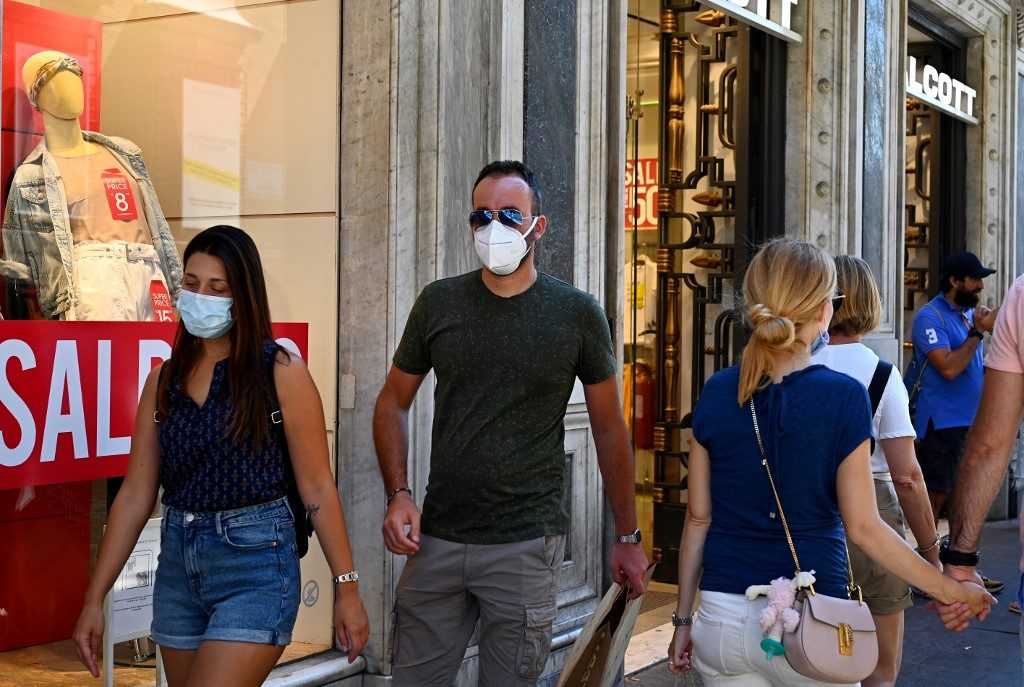SUMMARY
This is AI generated summarization, which may have errors. For context, always refer to the full article.

Eurozone consumer prices fell in August, official data showed on Tuesday, September 1, with inflation in negative territory for the first time since May 2016 as a result of plummeting demand due to the coronavirus crisis.
The European Union’s Eurostat data agency said inflation fell to -0.2% in August, a steep drop from a positive 0.4% in July and even further off the official target of near 2%.
The descent into deflationary territory comes despite historic stimulus measures by the European Central Bank (ECB) to stimulate prices and breathe life into the European economy.
The ECB, led by Christine Lagarde, has pumped in 1.35 trillion euros as well as cut interest rates to negative levels in order to keep borrowing costs low and boost demand.
“The data released today put the ECB’s challenge in stark relief,” said Jack Allen-Reynolds, senior Europe economist at Capital Economics.
“Monetary policy in the eurozone will need to remain extremely loose for many more years to come,” he added.
The step into deflation puts even more pressure on governments to increase public spending to restore demand and the economy.
Some European capitals have already opened the money taps, with the German government leading the way in efforts to jump-start its coronavirus recovery.
EU leaders in July agreed on a huge recovery plan for Europe but this would not kick in until early next year at the earliest, with the details yet to be worked out.
Eurostat also said that in July, the unemployment rate stood at 7.9% compared to 7.7% in June, but it stressed that its method of calculation does not fully account for the consequences of the virus-related confinement. – Rappler.com
Add a comment
How does this make you feel?


![[Time Trowel] Evolution and the sneakiness of COVID](https://www.rappler.com/tachyon/2024/02/tl-evolution-covid.jpg?resize=257%2C257&crop=455px%2C0px%2C1080px%2C1080px)







There are no comments yet. Add your comment to start the conversation.